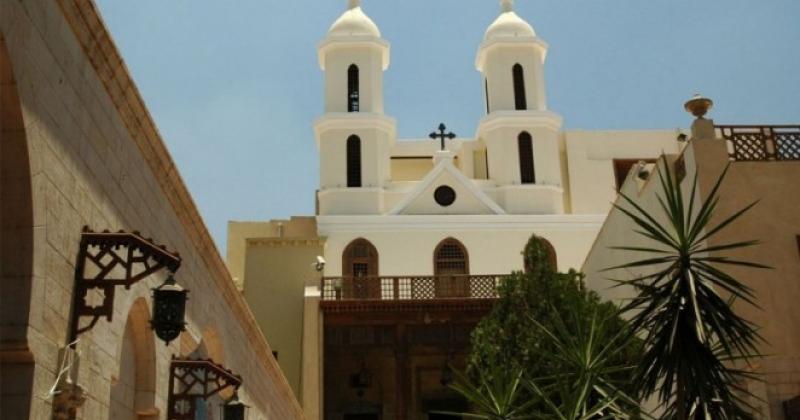During the Midnight Mass service Pope Francis said the most important thing is to let the Lord find us. The light of the Child Jesus was seen by “the unassuming”, “not ... by the arrogant, the proud, by those who made laws according to their own personal measures, who were closed off to others”.
God fell “in love with our smallness”. Francis chose these words to speak about the mystery of Christmas at the Midnight Mass in St. Peter’s Basilica. “By opening our hearts, we also can contemplate the miracle of that child-sun who, arising from on high, illuminates the horizon,” he said in his homily.
Pope Francis cast the minds of faithful back to “the origin of the darkness which envelops the world is lost in the night of the ages. Let us think back to that dark moment when the first crime of humanity was committed, when the hand of Cain, blinded by envy, killed his brother Abel. As a result, the unfolding of the centuries has been marked by violence, wars, hatred and oppression.” “But God, who placed a sense of expectation within man made in his image and likeness, was waiting. He waited for so long that perhaps at a certain point it seemed he should have given up. But he could not give up because he could not deny himself. Therefore he continued to wait patiently in the face of the corruption of man and peoples.” “Through the course of history, the light that shatters the darkness reveals to us that God is Father and that his patient fidelity is stronger than darkness and corruption.”
This is what the message of Christmas night is about: God does not know outbursts of anger or impatience; he is always there, like the father in the parable of the prodigal son, waiting to catch from afar a glimpse of the lost son as he returns.” Isaiah’s prophecy announces the rising of a great light which breaks through the night. This light is born in Bethlehem and is welcomed by the loving arms of Mary, by the love of Joseph, by the wonder of the shepherds. When the angels announced the birth of the Redeemer to the shepherds, they did so with these words: “This will be a sign for you: you will find a baby wrapped in swaddling clothes and lying in a manger.” The “sign” is the humility of God taken to the extreme; it is the love with which, that night, he assumed our frailty, our suffering, our anxieties, our desires and our limitations. The message that everyone was expecting, that everyone was searching for in the depths of their souls, was none other than the tenderness of God: God who looks upon us with eyes full of love, who accepts our poverty, God who is in love with our smallness.” “On this holy night,” Francis continued, “while we contemplate the Infant Jesus just born and placed in the manger, we are invited to reflect. How do we welcome the tenderness of God? Do I allow myself to be taken up by God, to be embraced by him, or do I prevent him from drawing close? “But I am searching for the Lord” – we could respond. Nevertheless, what is most important is not seeking him, but rather allowing him to find me and caress me with tenderness. The question put to us simply by the Infant’s presence is: do I allow God to love me?”
“More so,” the Pope went on to ask, “do we have the courage to welcome with tenderness the difficulties and problems of those who are near to us, or do we prefer impersonal solutions, perhaps effective but devoid of the warmth of the Gospel? How much the world needs tenderness today! The Christian response cannot be different from God’s response to our smallness. Life must be met with goodness, with meekness. When we realize that God is in love with our smallness, that he made himself small in order to better encounter us, we cannot help but open our hearts to him, and beseech him: “Lord, help me to be like you, give me the grace of tenderness in the most difficult circumstances of life, give me the grace of closeness in the face of every need, of meekness in every conflict.”
“On this holy night,” Francis concluded, “we contemplate the Nativity scene: there “the people who walked in darkness have seen a great light” (Is 9:1). People who were unassuming, open to receiving the gift of God, were the ones who saw this light. This light was not seen, however, by the arrogant, the proud, by those who made laws according to their own personal measures, who were closed off to others.
Gregorian chants were sung during the mass along with a piece from Mozart’s Great Mass in C minor (Et Incarnatus est) which refers to the Prologue of John’s Gospel. Tomorrow, 25 December, Francis will pronounce the traditional Urbi et Orbi message from the central Loggia of St. Peter’s Basilica. After the Christmas letter he sent Christians of the Middle East last Tuesday, Francis wished to express his closeness to them again on Christmas Eve. Just after 4 pm (CET) he telephoned a group of refugees who had gathered in a small building on the outskirts of Erbil to celebrate Christmas Mass: “My thoughts are with you,” he emphasised, “I am praying for you and I send you many blessings.”
